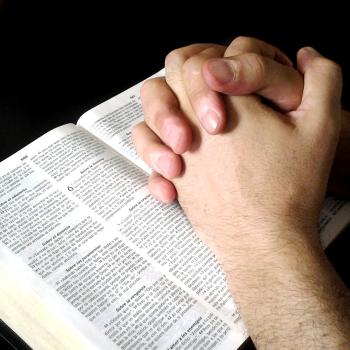People who attend churches sometimes leave them.

Image via Pixabay
Even pastors! I myself have moved on from a few in my career, always after a prayerful search and sense of God’s leading.
As a pastor, I’ve certainly had people leave churches that I lead on occasion.
Sometimes people leave very well.
Sometimes, not so much.
And many people have told also me stories about trying to leave their church well, and their pastors made the parting horrible.
So the blame can certainly go both ways.
For most Christians, church is a big part of their life, and leaving a church is a major decision, and there can be a lot of emotion that goes with it.
Sometimes we are leaving angry or hurt.
Sometimes it is “just time.”
Sometimes the Lord is clearly leading a change.
Sometimes He isn’t at all, but it sure is easier to put it all on Him!
However it is happening, the act of leaving can bring out our best and our worst.
So I thought I would share on things from a pastor’s perspective, on how to leave church in an honouring and loving way, and also share how pastors can help this transition.
It is inevitable that such times will happen, and both pastor and congregant should seek to part in the best way possible, wherever possible.
Before we jump in, I will add the caveat that in places where there has been abusive church leadership, I am not suggesting these following steps. I would instead encourage you to remove yourself from the situation quickly, and if possible, contact a different spiritual authority either in your church, or if that is impossible, someone in authority over your church (such as a denominational leader) and share your story of what is going on (see 1Sam 19.18).
For the rest of us, here are some things to think about if we do need to part ways with our church:
- Pastors, you have an obligation to lead well in this area. As the leader, it is on you to set the example (Titus 2.7-8). A major reason many people don’t leave churches well is often because of poor leadership, and people are anxious about how their pastors will react. We are to love the sheep and care for them well, even if that care means releasing them from our particular flock. Our ego and our needs are not the most important matters in these moments. The sheep are ultimately the Lord’s, not “ours.”
- This can be the prayer for people considering leaving: Does the Lord want me to go, or does He wish me to stay and press through? Sometimes there are disagreements in a church, challenges from leadership, trials, differences of opinion, etc., and these things are actually all tools that the Lord wants to use for our growth and our good. It can feel peaceful to leave such stress behind, but that doesn’t mean that the peace is from God – it may just be the nice feeling that comes when we remove ourselves from uncomfortable circumstances. But God sometimes calls us to remain in uncomfortable places (think of David, Job, Abraham, Israel in the desert, etc.) because that’s where the most growth happens. So our number one prayer is, “Lord, where I attend is ultimately up to You – so what do you want me to do?”
- If we do feel that it is time to leave, we should have a conversation with our spiritual leader wherever possible. I am often surprised by how many people just slip out the door and never say a word, leaving church leaders to wonder and guess and pursue to see what happened. Understandably, such conversations are challenging, but at the same time, typically our leaders have loved us, prayed over us, taught us, walked with us, encouraged us, challenged us, and like shepherds have watched over us as those who will one day give an account to God (Heb 13.17). We can acknowledge these things by having a chat and not simply disappearing.
- Ideally this conversation will happen in person or at least on the phone, although I realize that I sound like an old man from a different generation when I say that. The reason is that those methods give room for actual real conversation, much more than a text or email. It allows for back-and-forth, mutual sharing, and for respect and honour to be paid in both directions. At times, people have left churches that I’ve pastored after years of ministering and doing life together, and I have received a one-sentence email. I would have loved to have been able to share something better with people that I care about, although I understand that this can be difficult and perhaps overwhelming.
- Do we use our parting as a time to lay out our grievances, if we have any? I think it depends. Sometimes that can be an important part of leaving, but I also feel that it can be unfair, if you have never brought them up before. I am divided on the matter. Sometimes people have left me a laundry list of things they were upset by for years, and I had no idea. Part of me is grateful to know and have things to work on, but part of me also feels that it was unjust to only bring it up as they walk out the door. As well, sometimes people feel very bold when they know they are leaving and there are no consequences for their words, and are much blunter and perhaps more hurtful then they would normally be. Better probably would be to regularly be talking to your leadership about concerns, and not let them bottle up to the point where you need to leave and let them out all at once. But at times, I think a short, respectful explanation can be healing for the one leaving and helpful for the leader remaining.
- That being said, “respectful” is the key. Our language in both directions should be honouring, not accusatory, acknowledging that the time has come to leave but not seeking to hurt the leader or damage the relationship or the church. I live in a small town, and occasionally someone has left badly or awkwardly but then we run into each other at the town’s only Walmart from time to time. It’s not fun! Rule of thumb: Try to part in such a way that you can run into each other at Walmart and be friendly. We are still brothers and sisters in Christ!
- I am a grateful person by nature, and so I think it important for us to show gratitude for one another. I respect that this can be challenging if we are angry. But again, our leaders have invested in our lives, and our people have invested in our churches, and often there can be something that we can be thankful for, in both directions. If we are to be thankful in all circumstances (1Th 5.18), then surely this circumstance must count!
- No doubt there are church leaders out there where the thought of a congregant going through this process is scary, or trauma from previous church leaders make the thought of doing this with anyone overwhelming, I understand that, and if that’s you, would encourage you to find some spiritual counsel that you trust and seek the best way forward.
- To the pastors out there, your final act of pastoral care for the person leaving is to love them well and honour them, remembering your role as caring shepherd over the sheep that God has temporarily entrusted to you (Ac 20.28). This is not about your ego or your ministry, it is only about caring for the person, even if you disagree with them or if they are hurting you as they go. Just as most pastors I know (myself included) bear wounds from sheep leaving badly, there are sheep who bear wounds from pastors who botched the parting. One day the pastor will give an account to God for how they treated His children, so mutual respect and love and care are called for, and as in all things, the leader is to set the tone and the example of what a loving parting can look like (1Tim 4.12).
Recently someone left my church, and reached out to me (it was via email, but it was during COVID, and that was OK under the circumstances).
Her brief note simply said (simplified, paraphrased, and with details omitted):
I am leaving. Here is why. Thank you for these things over the years. I am praying for you. I wish God’s best for you.
I was sad to see her go, but appreciated how she handled this. I returned gratitude and blessing back to her, and gave my blessing to her moving on.
We will be just fine when we run into each other at Walmart.
And in Heaven, I’m sure we will laugh about it all.
Hopefully such times of parting are few and far between. When such times do arise, both pastor and congregant should be able to walk in love, humility, honour, and respect as they do, seeking to emulate the way of Christ in all things.
********
If you’ve enjoyed what you read here, you can follow Third Way Christians on Facebook or Instagram, or sign up here to get new columns emailed directly to you! As well, you can track along with Chris’ Sunday morning teaching at Meadow Brook Church’s YouTube page!












